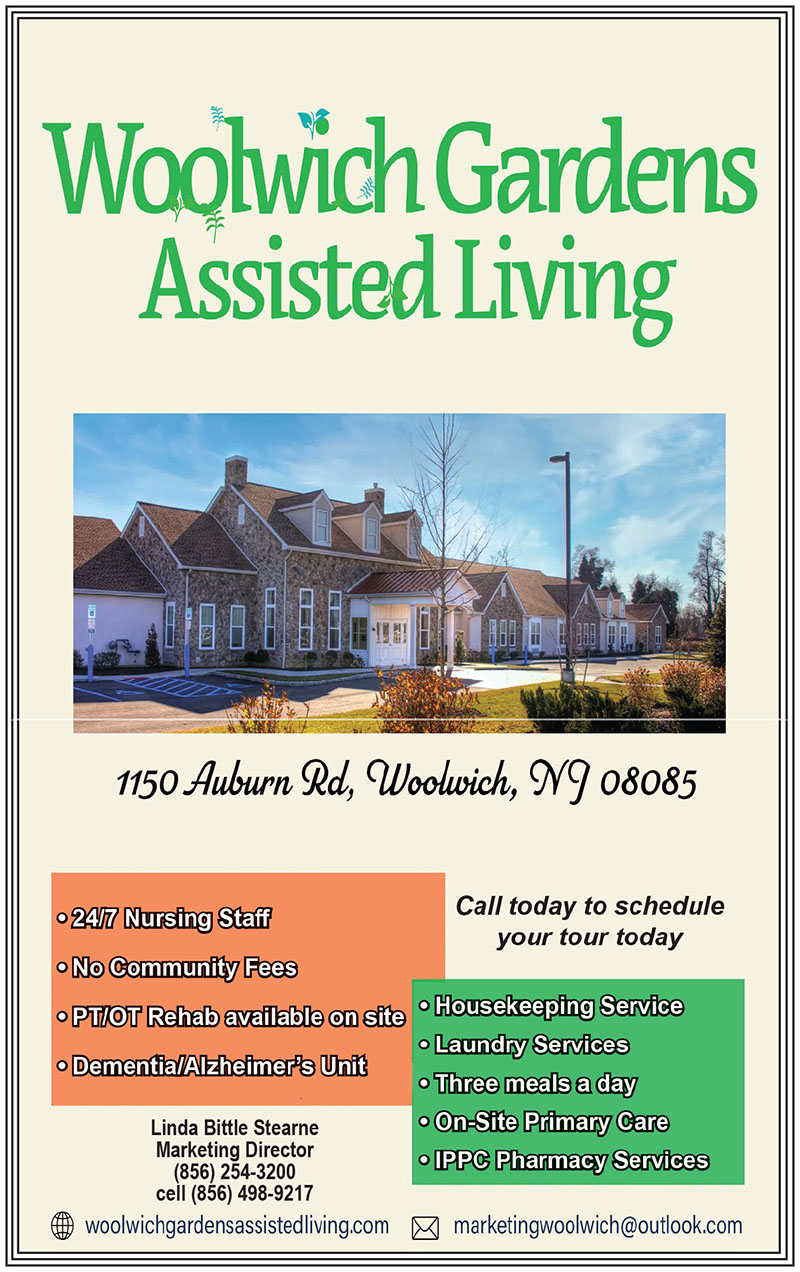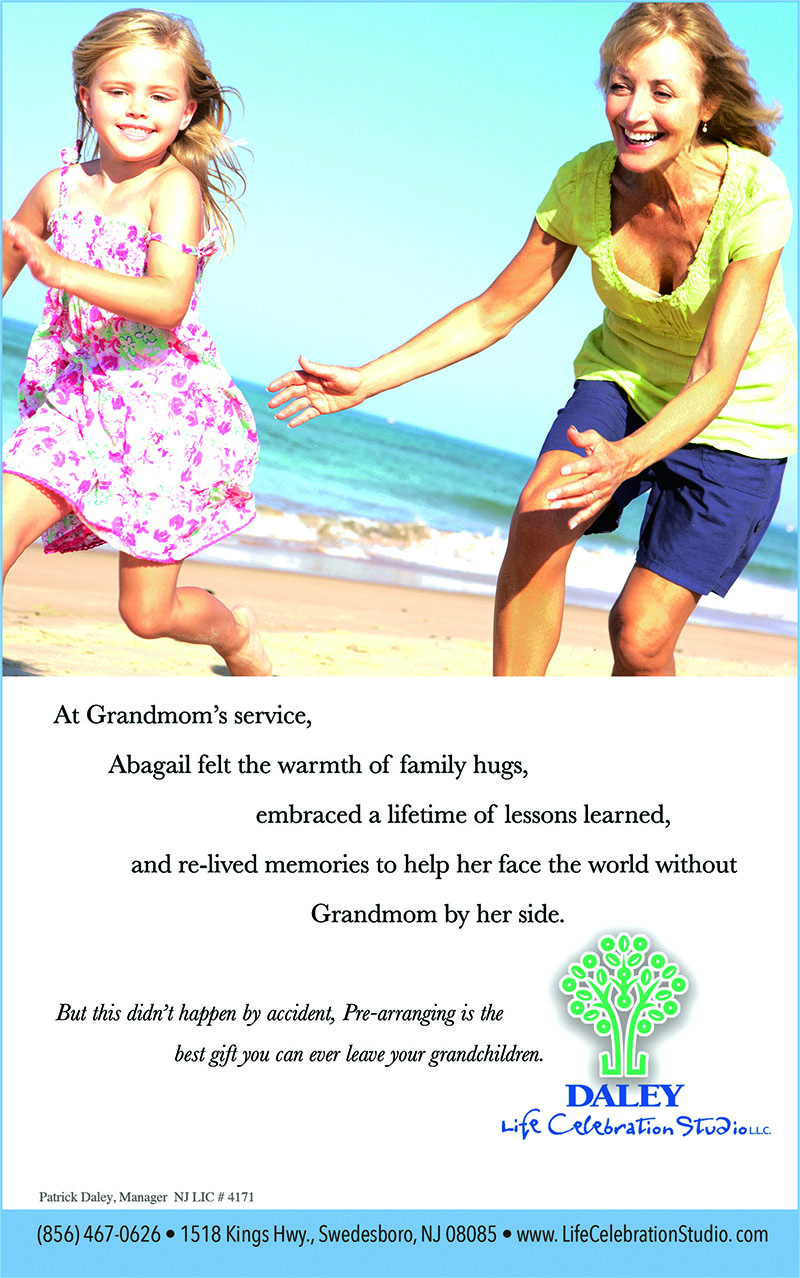Upon arriving home from work, Jessica Alvarez enters her garage, removes all of her outer clothes—scrubs, shoes, etc.—and puts them into a trash bag-lined laundry basket. She immediately goes to shower before greeting her children or husband.

Her youngest child does not understand the reasoning behind this, so she secretly runs to the bathroom before he sees her.
Thirty-eight-year-old Logan Township resident Alvarez is a respiratory therapist at a Delaware trauma center and primarily works in an intensive care environment, which is also the hospital’s designated COVID-19 ICU.
Alvarez’s husband is an ICU nurse in a South Jersey hospital and also treats COVID-19 patients, which makes the infection risk to her family twice as high.
“I’m fearful every shift I work. It doesn’t prevent me from doing my job by any means, but it’s always in the back of my mind [that] I could get this and bring it home,” said Alvarez.
“I have two children who are exposed to both parents on the frontline, which is scary. I now am monitored twice a day for symptoms via a texting system due to my high-risk job. My temp is taken upon arrival and I wear a mask unless I’m eating,” she explained.
Due to the fluidity of the situation, Alvarez explained that the way she performs her job has changed multiple times during the pandemic.
“The medical world is learning things every day about COVID and we have to adapt to new information constantly. One day we will perform a procedure one way, the next it’s different.”
Alvarez added that most changes involve the personal protective equipment (PPE) required for patient care. “It’s very unnerving having constant changes in PPE. Certain procedures and devices require an N95, some don’t, and it seems to change often. No two hospitals seem to be doing the same protocols.”
Alvarez’s specific PPE included an N95 mask which was to be worn for four shifts before she was issued a new one. But she now has a personal reusable respirator mask which is meant to be reused. “Most of the time I do feel safe with my PPE,” she added.
“It’s really surreal seeing people walking around in masks all day,” Alvarez confided. “I’ve had some days that I’ve cried and days that I’ve smiled. As the time went on, I think a lot of us got used to it and got used to the PPE, but the fear doesn’t every truly go away, especially during emergent situations.”
Alvarez recalled quite a few instances of treating COVID-19 patients, but shared her most memorable.
“I held the hand of a dying elderly gentleman while the family said goodbye over Facetime and his daughter sang to him. The nurse and I were the only two in the room with him when he died. We held his hand and told him it was ok. Two complete strangers.”
“Crying under PPE is not easy either. I’ve watched a mother stand outside the room watching her daughter pass, not being able to hold her hand, and the only privacy was a partition blocking them.
“I’ve had to watch my own colleagues be sick, and fighting back tears praying for their recovery.”
“I’ve gotten to take out a breathing tube of a younger gentleman then happily Facetime his wife so she could see and hear he was doing well. I’ve gotten to cheer on the survivors of COVID as they’ve been discharged with gratitude.”
This high-stress and emotional environment is sure to be taxing.
“It’s stressful being on the frontlines,” Alvarez confirmed. “There are days I say I’m done, and days where I feel proud of what I do. I feel a sense of responsibility and loyalty to show up, especially for my coworkers.”
“Seeing patients have to die without their loved ones really is heartbreaking. I cannot imagine not being able to hold my mother’s hand when she passed away,” said Alvarez, who lost her own mother in February.
“I’m lucky to work with very compassionate people and we stand by the belief that no one dies alone.”

John G. is a Mullica Hill resident and a staff nurse at psychiatric facilities in New Jersey and Pennsylvania. He contracted COVID-19 while treating infected patients.
John explained that patients in a psychiatric ward either don’t understand or refuse to comply with social distancing. “Furthermore, providing direct care precludes maintaining a ‘safe’ distance,” he noted.
“My personal feeling is that everybody working in any hospital has been exposed, and most likely already experienced mild or entirely asymptomatic infection, myself included. Nursing stations alone do not provide conditions for the expected six-feet boundary.”
Although John has since recovered from the virus, information on reinfection risk is still unclear and unverified, so he continues to live separately from his wife and children.
“I’m staying away from my loved ones for their health’s sake. I have not been living with my family for months now. Visiting from the driveway is the closest I get.”
“I joke that I now get the chance to serenade my wife from street level while she watches me from the second-floor terrace. It’s a very weird and bizarre situation.”
John noted one unexpected development during the pandemic. “The most surprising experience is the sincere recognition nurses received publicly for the work provided to patients. Prior to the pandemic I feel there was an ubiquitous underestimation of the effort and mental drain during the length of shifts to provide the necessary care.”
And while some healthcare providers may finally be getting the thanks and recognition they deserve, this doesn’t make the reality any less stressful. And when it comes to the stress of dealing with this pandemic, Mount Royal resident Heather McPaul is an expert.
McPaul is a licensed professional counselor who runs a private practice, Symmetry of Self Counseling Center, in West Deptford. She is currently supporting family members, spouses and neighbors of those with COVID-19 and has also been counseling healthcare providers treating infected patients.

Because of the pandemic, McPaul has switched to using telehealth video platforms to support her clients. “I knew the best way I could do my part in keeping my clients and myself safe was to work remotely,” she said.
But there have been challenges, she noted. “My job has become somewhat more stressful as telehealth is more emotionally draining than in-person sessions and I am navigating things I wouldn’t normally have to, like technical difficulties with the video platforms and insurance reimbursement issues concerning telehealth.”
McPaul explained how the pandemic has affected some of her clients, many of whom at first resisted remote sessions.
“I have seen a lot of people become symptomatic with heightened anxiety and depressive symptoms or heightened grief who have asked to come back. I think when we do resume some sense of ‘normalcy’ there will be a lot of people needing to process what they’ve just been through and what they have lost in all of this.”
“Many people have resorted to survival mechanisms and are either over-functioning [keeping super busy] or under-functioning [doing very little or just enough].” She explained that both are fairly normal reactions to abnormal and stressful situations like the pandemic and quarantine.
“The best advice I can give right now is to make sure you are taking care of your bodies and minds as much as possible with food, water, sleep, and some form of body movement.”
When asked about healthcare workers and community members who may be facing serious challenges like anxiety, depression, fear, and grief during this time, McPaul had sage advice.
“We need to challenge our cultural biases about coming to counselling and reach out for help. You do not have to go through this alone. It is an opportunity to learn more about how to manage your stress and how to work through the experiences you go through.”
“Finding a good therapist that is a good fit for you can be hard; you may have to shop around and that is okay,” she added.
As the rate of infection in the state has seen a decrease, many businesses have reopened and some activities have resumed. But for many, said McPaul, this raises new concerns.
“I think it’s important for people to work on recognizing their limits and continue to give themselves some space or boundaries with how much they are engaging in social activities. Some people will dive into the deep end of the pool and some people will need to go in one toe at a time.”
“I think most of us will be anxious, at least a little. We need to give ourselves permission to say no to invites if it feels overwhelming, be patient and kind with ourselves as we learn how to adjust, and ask for help if it feels insurmountable from a mental health therapist for additional tools.”
Many scientists and healthcare professionals have warned of a “second wave” of the virus. Jessica Alvarez agrees that this is inevitable, and that only time will tell how bad it will be. She urges everyone to wear a mask and to social distance, and is dismayed that some states require masks and some don’t.
“We are dealing with how to treat a virus in live time, that’s incredibly difficult, and as frustrating as that is, people have to understand that. People need to stop politicizing COVID. We live in a very entitled society and I wish for one day that all the people out there that think this isn’t serious or over-dramatized can come to work with me and walk the hall of a COVID unit.”
“And while many families are struggling in so many ways, especially financially, please remember that those in healthcare working with COVID patients are sometimes fearful for our lives and children’s lives, even though I’m still getting a paycheck. At times it doesn’t feel worth it,” she continued.
Alvarez acknowledged that a lot of mistakes have been made on all levels, but thinks that her workplace will be better prepared for a resurgence. She stressed that healthcare workers will always need to be protected with the best possible PPE. “Because if we get sick, then who will take care of you or your loved ones?” she asked.
“I know many people who thought this was no big deal, to then be directly affected by the loss of a loved one from COVID. They changed their minds really quick.”
“If you’re not diligent with the recommended guidelines from scientific officials, you’re putting many at risk, including the people that you will need if you get sick. It’s not over, I assure you.”
“Be smart, not selfish,” she concluded.
John G. agrees. “It is worth enduring current discomfort and parting away from with our usual way of life; that does save lives. Follow the guidelines. Period. It’s not over yet!”
By Colleen Woods-Esposito







